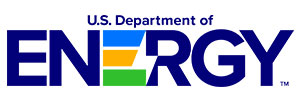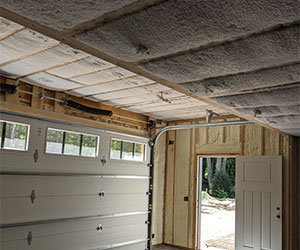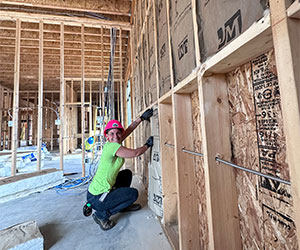Proper insulation is a game-changer for Michigan homeowners. In a state known for its harsh winters and humid summers, insulation is essential to maintain a comfortable indoor environment, reduce energy bills, and minimize environmental impact. By keeping your home warm in winter and cool in summer, proper insulation not only enhances comfort but also contributes to significant energy savings. Even better, Michigan residents can now access financial incentives from the Michigan Home Energy Rebates program (MiHER) and the Inflation Reduction Act (IRA) to make energy efficient home improvements more affordable than ever.
MiHER: Insulation Rebates You Can’t Miss
HOMES: Prioritizing Energy Efficiency
 The HOMES (Home Efficiency Rebates) program under MiHER emphasizes whole-home energy efficiency by offering rebates for insulation and air sealing upgrades. To qualify, you must:
The HOMES (Home Efficiency Rebates) program under MiHER emphasizes whole-home energy efficiency by offering rebates for insulation and air sealing upgrades. To qualify, you must:
- Meet minimum R-value standards for insulation.
- Ensure proper installation by certified contractors.
- Achieve measurable improvements in air sealing.
Rebate amounts vary depending on your income and the extent of the insulation upgrades. For low-to-moderate-income households, these home energy rebates programs can significantly offset costs.
Rebate amounts vary depending on your income and the extent of the insulation upgrades. For low-to-moderate-income households, these home energy rebates programs can significantly offset costs.
HEAR: Supporting Clean Energy
The HEAR (Home Electrification and Appliance Rebates) program indirectly supports insulation by promoting high efficiency technologies like heat pumps. A heat pump water heater or heating system performs best in a well-insulated home, making insulation a critical step toward maximizing your energy efficiency upgrades.
Boost Your Savings: Combining MiHER with the Inflation Reduction Act
Insulation Tax Credit
 The federal Inflation Reduction Act (IRA) offers a 30% tax credit for upgrading insulation and air sealing materials, up to $1,200 annually. It also covers up to $150 towards a home energy audit. This energy efficient home improvement credit can be claimed using IRS Form 5695, reducing your federal taxes while making your home more energy efficient.
The federal Inflation Reduction Act (IRA) offers a 30% tax credit for upgrading insulation and air sealing materials, up to $1,200 annually. It also covers up to $150 towards a home energy audit. This energy efficient home improvement credit can be claimed using IRS Form 5695, reducing your federal taxes while making your home more energy efficient.
Combining Incentives
As a Michigan homeowner, the good news is you can combine MiHER rebates with the IRA’s tax credits and rebates for even greater savings. Below is a hypothetical scenario that demonstrates how you can save money while upgrading your home through these complementary programs. For precise rebate amounts, consult MiHER guidelines and a qualified contractor.
For a $2,000 insulation project:
- MiHER rebate: $1,000 (hypothetical example, varies based on program specifics).
- Net cost: $1,000.
- IRA tax credit: $600 (30% of $2,000).
Total Savings: $1,600 ($1,000 rebate + $600 tax credit).
Out-of-pocket cost: $400.
Eligibility, Application, and Choosing the Right Contractor
Income Limits and Home Energy Audits
Eligibility for MiHER’s Home Energy Rebates programs depend on income. Low-income households will qualify for higher rebate amounts than moderate-income households. A home energy audit is required to assess your home’s current efficiency and determine the rebate amount. This audit is a vital step toward energy efficient home improvements.
Application Process
To apply:
 Learn more about the program and its requirements online before applying.
Learn more about the program and its requirements online before applying.- Schedule a home energy audit with a certified professional to identify energy efficiency upgrades.
- Work with a pre-qualified contractor to complete insulation upgrades.
- Submit documentation for rebates and tax credits.
Choosing a Qualified Contractor
Selecting an experienced contractor is crucial for proper installation and maximum effectiveness. At Whitson Insulation Company, a trusted name in our Grand Rapids community, we specialize in top-quality insulation and meet MiHER’s contractor requirements. With a focus on clean energy, high efficiency, and customer satisfaction, we ensure expert installation.
Other Important Information for Michigan Homeowners
Regional Rebate Allocations
MiHER funding will be distributed regionally and across the state and is expected to serve up to 15,000 Michigan households. Act quickly to secure your share.
Consumer Protection and Equity
MiHER includes safeguards to prevent fraud and ensure fair pricing. Its Community Benefits Plan will also promote equity, making programs accessible to all Michigan homeowners.
Timeline
MiHER’s rollout includes several milestones, but the program is expected to open to all residents statewide in early 2025. Stay updated on deadlines to maximize your benefits.
Beyond MiHER: Explore More Insulation Incentives
Utility Rebates and Assistance Programs
Local utilities like DTE Energy and Consumers Energy offer additional rebates for insulation upgrades. For low-income households, the Weatherization Assistance Program provides free or low-cost insulation services.
Michigan Home Energy Incentives Calculator
Use Michigan’s online Home Energy Incentives Calculator to explore all available programs offering home efficiency incentives and plan your upgrades.
Take the Next Step Toward Comfort and Savings
Ready to upgrade your insulation and watch your home’s comfort and energy bills improve? Contact us today for a free consultation. Whether you’re looking to save on costs or achieve a more energy-efficient home, our expert team will guide you through available incentives and upgrades.
Have questions or experiences to share about insulation incentives? Send us a message—we’d love to hear from fellow Michigan homeowners!
